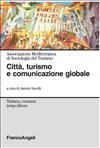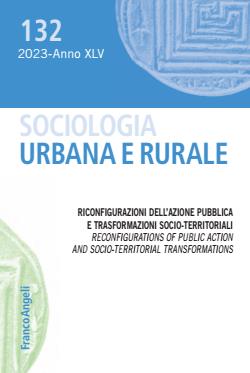
cod. 1805.18
La ricerca ha estratto dal catalogo 118 titoli

cod. 1805.18

Social Work and Territory. Italian Social Affairs transferred to Regional Level: what changes in the Social Work? is a project financed by Ministero dell’Istruzione, dell’Universistà e della Ricerca”, that involves eight Universities (Bologna, Catania, Macerata, Napoli, Sassari, Siena, Trento, Trieste). The local projects analyse the role of Social Work in this stage of promotion of regional policies in their typical contexts, where the formation of Social Worker rises as a central aspect. The territorial dimension, the organization and the management are very important, as law, administrative and project policies too. The effects on the interactions between public and private sectors and on the role of voluntary and Third Sector are very interesting, specially regarding their support activities for public policies.

Quale welfare. Possibili strategie di lotta alle povertà urbane
cod. 1563.39

Spazi di socialità nel periurbano emergente per un migliore welfare
cod. 1562.25

Una esperienza di welfare mix nel settore delle emarginazioni gravi
cod. 1563.36

cod. 1561.50

cod. 1520.1

Come costruire gli strumenti, raccogliere le informazioni ed elaborare i dati
cod. 1520.256


The anthropological-cultural dimension failed to achieve the consideration it should have been granted within the sociological analysis of urban areas. And when it did, it was often confined to the analysis of a few specific cases. New urban rituals, as well as new ways in which everyday life is organised on the territory, both play a fundamental part in the evolution of the city shape and structure. Our attention must be focused on the processes through which old myths are overcome and new rituals formed, if we are to understand the dynamics that evolve inside periurban areas: after undergoing a thorough emancipation from the city centre, these areas have become the territory where a varied population coming out from the city settles and proceeds to forge new myths and new rituals.

Studio sui percorsi di vita degli ospiti della comunità
cod. 1563.33

The development of western urban settlements has now reached a crucial stage, and is bound to face a dramatic change soon: the only possible outcome is a new model of urbanity, based on sharing, co-operation and a deep sense of belonging to the system itself. The speed at which this transition is taking place makes it unreasonable to expect any natural adjustment. It is therefore nowadays an absolute priority for the sociologist to investigate the process by which citizens develop their sense of belonging, sharing and co-operation with respect to the urban model they dwell in. This is of uttermost significance right now, at a time when countless factors seem to make participating in our urban model harder than ever before, both for urban residents and for everybody else.

This essay explores the thesis that there is a close link between the way poverty develops and the character and structure of a city. For this purpose we have taken a ‘retrospective’ look at how the question of poverty was understood and confronted in the paleotechnic city, from a rationalistic point of view, and at the time of the greatest explosion of classic metropolitan areas. However, as we approach a new phase of city development, it is necessary to consider whether changes in the mechanisms that produce poverty are also taking place, particularly with reference to the new ways of relating to a territory. We are now witnessing an unprecedented scenario in the study of poverty, centered mainly on situations involving what might be referred to as vulnerability. Such situations seem to be extremely changeable, linked to factors in continuous evolution and capable of significant discrimination between individuals and groups. It is nevertheless quite clear that the way a territory is organized - offering less sociality and mutual support - may create or speed up some forms of vulnerability. It was this question that motivated the most recent empirical studies carried out by the Ce.P.Ci.T (Centre for Studies on Problems in the City and the Territory), with results that give rise to some hope and urge us towards fresh attempts to tackle this problem.



Dove va la società italiana
cod. 1520.321

cod. 1561.43

cod. 1561.44

cod. 1042.12
